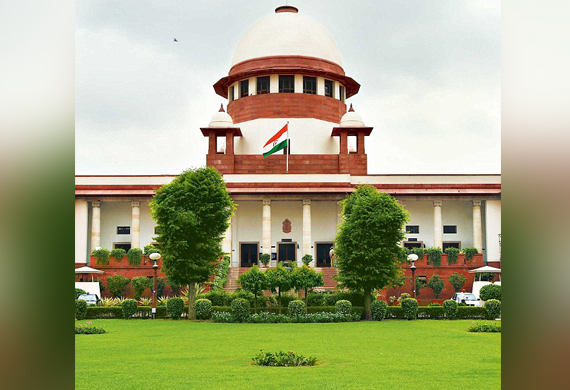
A Woman has Right to Live with her mother's & Mother-in-Law's Houses, says Supreme Court
By: WE Staff | Tuesday, 31 May 2022
The Supreme Court stated that a woman has the right to stay in her mother's and mother-in-law's houses and that no one may force her out simply because they don't like her.
A vacation bench comprising Justices Ajay Rastogi and B V Nagarathna made the announcement, "Sending away a woman just because you cannot stand her face will not be allowed by this court. This attitude of throwing out women from their matrimonial homes because of certain matrimonial squabbles is cracking up families.”
However, the bench was not in favour of granting women in married houses unrestricted right of residency. Justice Nagarathna stated, "If she is accused of misbehaving, then conditions can be put by court not to trouble the elders and family members in matrimonial homes.”
The case was a woman's appeal against a Bombay High Court judgement requiring her and her husband to vacate their father-in-property law's under the Maintenance and Welfare of Parents and Senior Citizens Act, which had been sought by her father-in-law. The panel had ordered her to quit her father-in-flat law's and ordered her and her husband to pay Rs 25,000 in monthly maintenance to the elderly couple. She had filed a writ petition, invoking her right of residence under the Protection of Women from Domestic Violence Act, to overturn the tribunal's decision. The HC had ordered the elderly couple's son to find alternate housing for his wife and two children, but had cancelled the maintenance obligation. She has appealed the HC's decision to the Supreme Court.
The bench ordered that her petition be listed on and that the Registry give video conference links to her in-laws. During the hearing, Justice Nagarathna was outspoken about the woman's right to live in a shared family, citing her own May 12 decision as a watershed moment in this regard.
On May 12, the Supreme Court vastly expanded the definition of' shared household' under the DV Act, ruling that a woman of any religion, whether she is a mother, daughter, sister, wife, mother-in-law, daughter-in-law, or other types of women in a domestic relationship, has the right to live in a shared household.
Justice Nagarathna had written a 79-page judgement, "a woman in a domestic relationship who is not aggrieved, in the sense that who has not been subjected to an act of domestic violence, has a right to reside in a shared household. Thus, a mother, daughter, sister, wife, mother-in-law and daughter-in-law or such other categories of women in a domestic relationship have the right to reside in a shared household dehors a right, title or beneficial interest in the same."
The right of residence of the aforementioned categories of women, as well as other categories of women in domestic relationships, is guaranteed by Sub-Section (1) of Section 17 of the Act, and she cannot be evicted, excluded, or thrown out of such a household even if there is no domestic violence, according to the Supreme Court.
The bench remarked, "In the Indian societal context, the right of a woman to reside in the shared household is of unique importance. The reasons for the same are not far to see. In India, most women are not educated nor are they earning; neither do they have financial independence so as to live singly."
Justice Nagarathna said "She may be dependent for residence in a domestic relationship not only for emotional support but for the aforesaid reasons.... A majority of women in India do not have independent income or financial capacity and are totally dependent vis-à-vis their residence on their male or other female relations who may have a domestic relationship with her.”
Most Viewed
- 1 Women's Health Startup HerMD Closing Doors Amid Industry Challenges
- 2 5 Famous Women in Indian Armed Forces
- 3 Saudi Women No longer Require Male Permission for Clothing Choices, says Prince MbS
- 4 Kolkata Medtech Startup Innovodigm Raises Rs 5.5 Crore Seed Funding Led by IAN Group
- 5 Yamunanagar's Kashish Kalra Honoured after Securing 111th Rank in UPSC Civil Services Exam
- 6 Madurai Appoints Its First Woman Corporation Head
- 7 IAS Vijayalakshmi Bidari Appointed as the new Nagpur Divisional Commissioner
- 8 American Entrepreneur Lucy Guo Overtakes T Swift to become Youngest Female Billionaire
- 9 ICC Women's World Cup 2025 Trophy Showcased at Indore's Holkar Stadium
- 10 Aparna Saxena's Beauty Venture AntiNorm Launches in India
- 11 Vidya Nataraj Co-Founded BlueStone Jewellery & Lifestyle files IPO
- 12 5 Women Freedom Fighters of India
- 13 Dr. G Krishnapriya appointed as CEO for Trichy
- 14 M3M & Sirona Partner to Introduce Menstrual Hygiene Vending Machines in 15 Locations
- 15 Punjab Govt launches SHE Cohort 3.0 Supporting Tech-led Women Startups
- 16 Indian origin Lawyer, Sweena Pannu appointed as the US New Superior Court Judge
- 17 The Aurora Tech Award recognizes 4 Indian Women-led Startups
- 18 Kerala's Republic Day parade featured an all-female tableau
- 19 Manisha Kabbur Becomes Karnataka's First Woman International Karate Coach
- 20 Director K. S. Ravikumar's Daughter Maalica Ravikumar Launches Life Coaching Company 'Evergrowth Academy' for Women
- 21 Leezu's Raises Pre-Seed Funding to Accelerate Growth in Sexual Wellness Industry
- 22 Sattu: Super-easy summer drink for PCOS gut healing
- 23 Swathi Nelabhatla creates Sitha App, India's First Women-Exclusive Gig Platform
- 24 7 Timeless Female Kathak Dancers & their Iconic Legacies
- 25 Meet 7 Iconic Women Architects of Modern India & their Most Impactful Work
- 26 This Woman-led Insuretech Startup is Helping Bridge the Education Financing Gap in India
- 27 Women Leaders Share Lessons Learnt from India Women's WC Win
- 28 5 Enterprising Women Founders Powering Singapore's Tech & Innovation Landscape
- 29 4 Women. 4 Stories. One Vision for Smarter, Stronger Healthcare
- 30 Global Gender Gap Narrows to 68.8%, But Full Equality 123 Years Away: WEF Report 2025
- 31 Changemakers: 7 Women Entrepreneurs Taking the Make in India Movement Forward
- 32 Meet Lucy Guo, The Youngest Self-Made Female Billionaire Disrupting Tech
- 33 How Women are Driving India's Festive Online Shopping Surge






